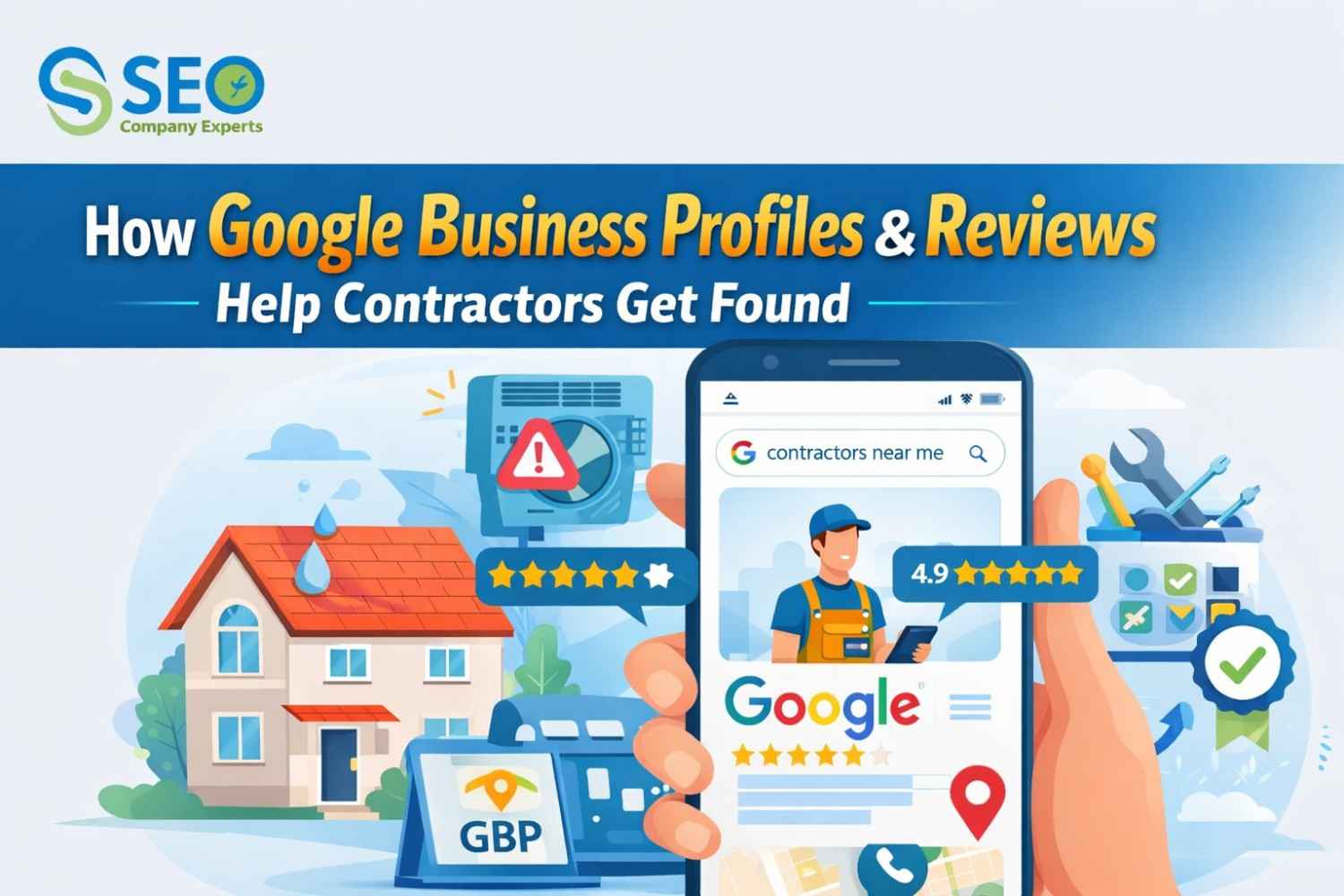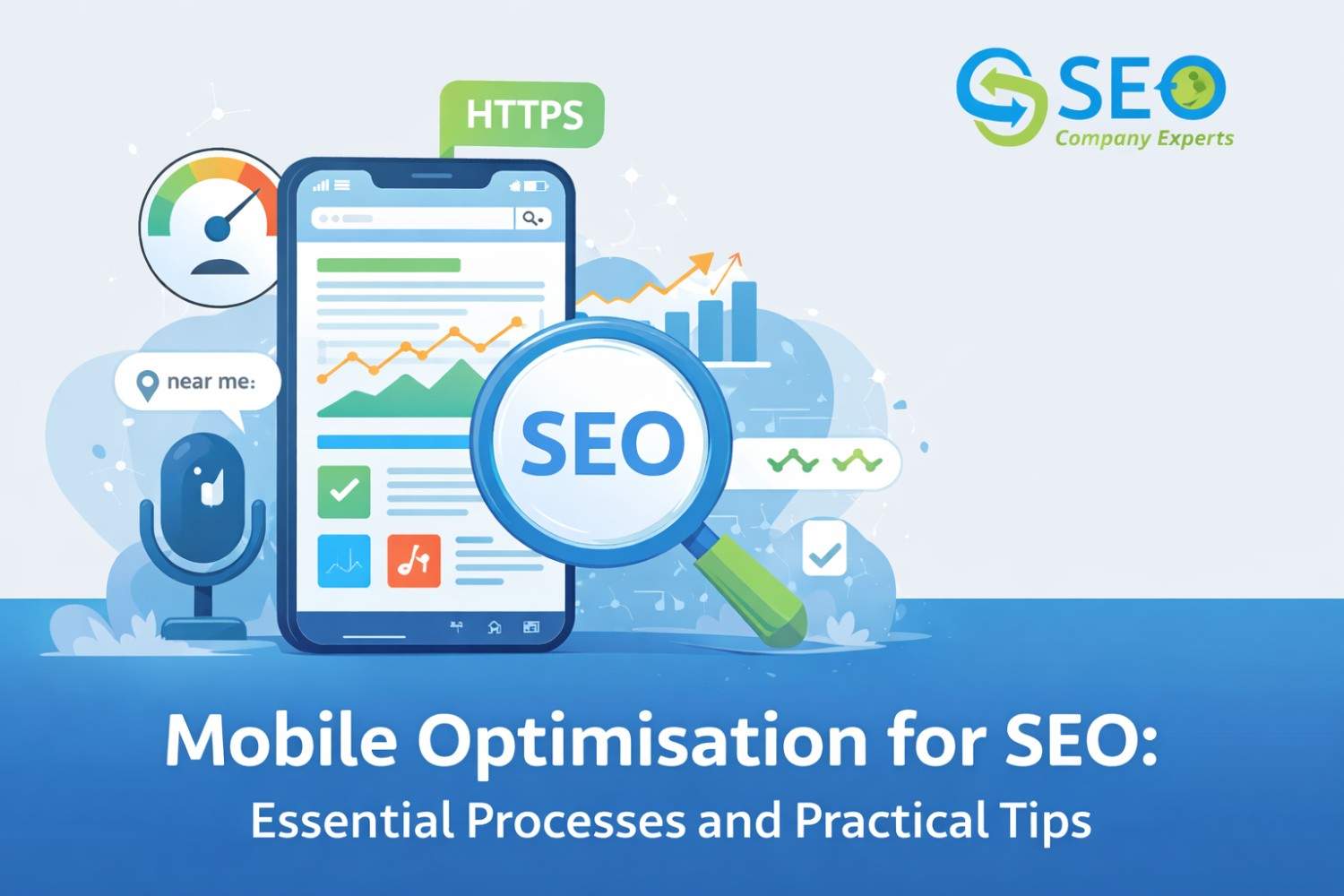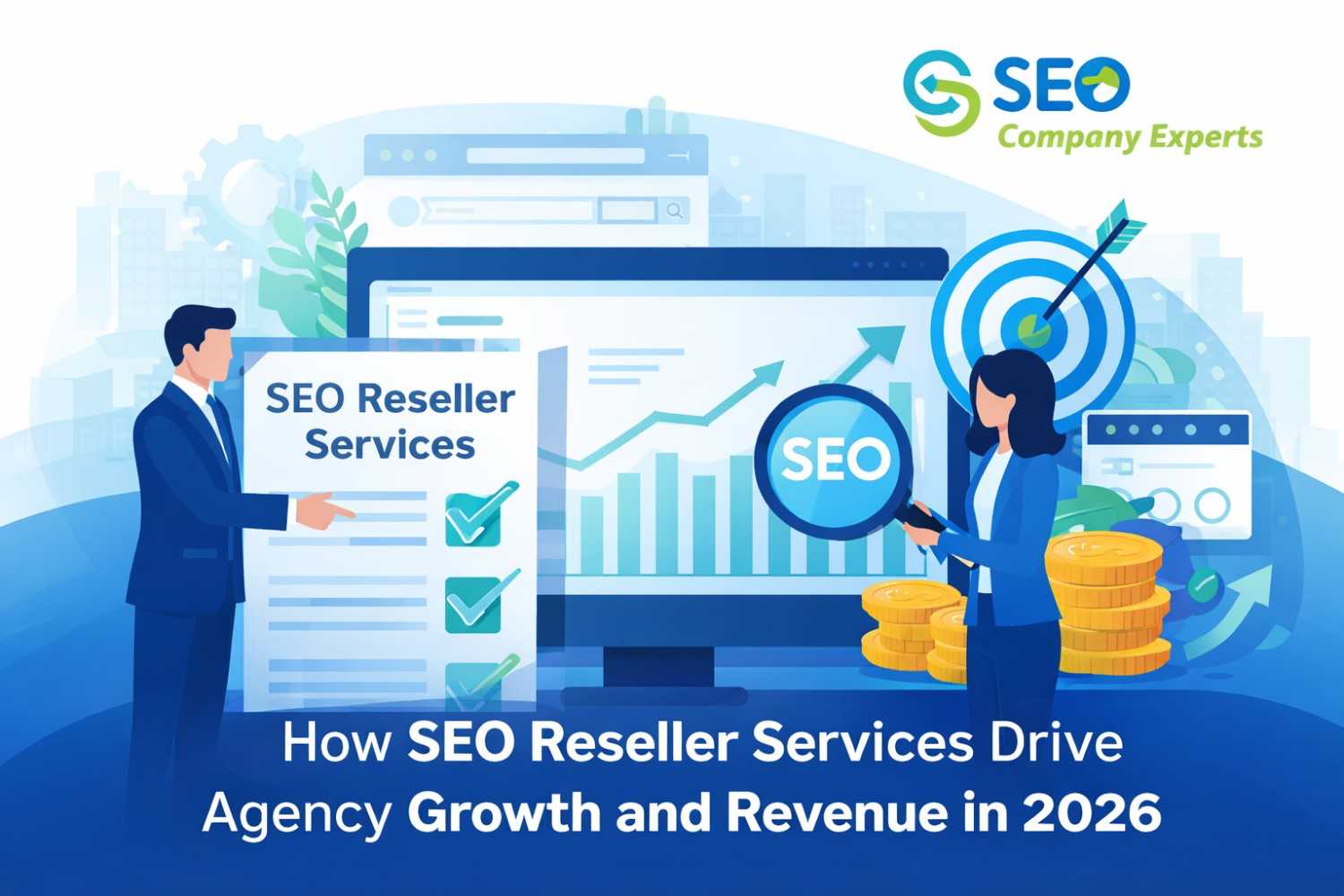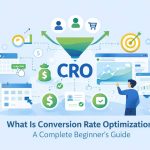
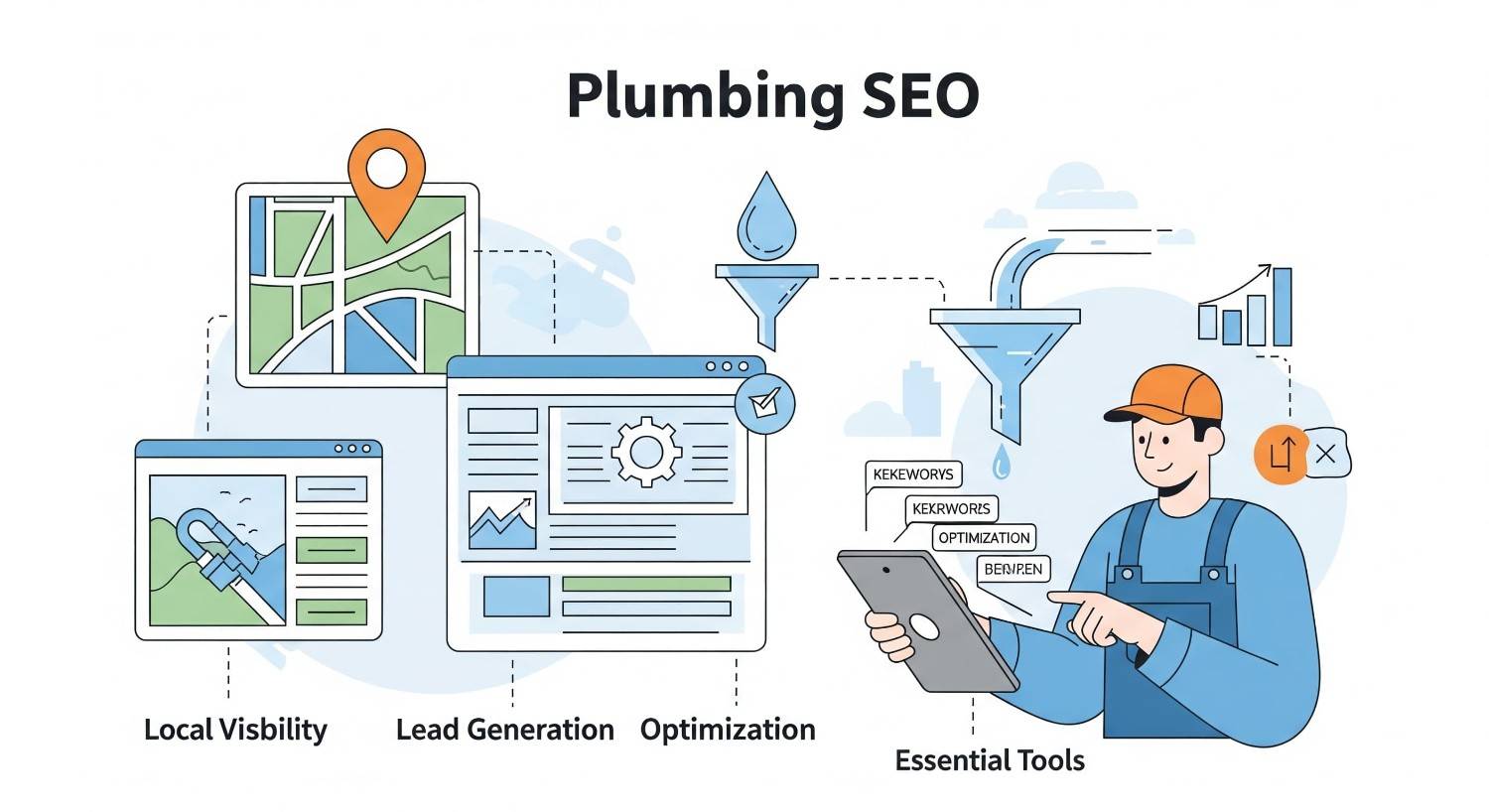
In today’s digital-first world, plumbing companies need more than word-of-mouth to grow. With thousands of customers searching for services like “emergency plumber near me” or “local plumbing repairs,” search engine visibility can make or break your business. This is where Plumbing SEO steps in—helping you rise to the top of Google, attract quality leads, and drive real online business growth.
What Is Plumbing SEO and Why It Matters Today
Plumbing SEO helps local plumbers rank higher in search engines, making it easier for customers to find them during urgent needs. With tailored keywords, local targeting, and optimized content, it drives traffic, leads, and business growth.
Understanding SEO for Plumbers
Plumbing SEO is a niche-specific strategy that focuses on optimizing your plumbing business’s online presence to rank higher in search engine results. This includes everything from keyword research and on-page optimization to link building and content creation. Unlike general SEO practices, SEO for plumbers prioritizes location-based searches and service-specific content. The goal is to connect your business with people who are actively searching for plumbing services in your area, often in urgent situations.
Why SEO Is Essential for Local Plumbers
Local plumbing businesses thrive on proximity and visibility. Most customers won’t scroll past the first page of Google when looking for a plumber, especially in an emergency. This means if your business isn’t ranking high, you’re likely losing out to competitors. Implementing Local SEO for plumbers ensures your business shows up in Google Maps, local search results, and voice searches. It helps build trust, drive more qualified leads, and ultimately convert website visitors into paying customers.
Building the Foundation – On-Page Plumbing Website SEO
Effective on-page SEO turns your plumbing site into a high-performing lead magnet. Optimize each page with keywords, fast load times, mobile design, clear CTAs, and local content to boost visibility, trust, and conversion rates.
How to Optimize a Plumbing Website for SEO
Your plumbing website is your online storefront—it must be fast, functional, and optimized for search engines. Start by ensuring each page is optimized with a keyword-rich URL, meta title, meta description, H1 tags, and internal links. Structure your content clearly so both search engines and users can navigate easily.
Focus on mobile responsiveness, site speed, and image optimization. A poorly performing site can drive users away and hurt your rankings. Implement a clear call-to-action (CTA) like “Book a Service” or “Request a Quote” on every page to guide visitors.
Content Optimization for Plumbing Pages
To enhance your plumbing website SEO, ensure that each service you offer has a dedicated, fully optimized landing page. For example, instead of one generic “Services” page, create individual pages for “Emergency Pipe Repair,” “Water Heater Installation,” and “Drain Cleaning.”
Use customer-focused language and include service areas, licenses, warranties, and trust-building elements like badges or testimonials. This structure not only improves SEO but also boosts user engagement and conversion rates.
Plumbing SEO Checklist for On-Page Success
- Use keyword-rich titles and H1 headers
- Include local keywords on each page
- Add alt text to every image
- Maintain consistent NAP (name, address, phone) across all pages
- Add structured data/schema markup
- Ensure fast load times (under 3 seconds)
- Use internal linking to guide users and search engines
- Include FAQ sections for content depth and relevance
Mastering Local SEO for Plumbers
Boosting local SEO starts with optimizing your Google Business Profile, building consistent citations, and targeting the Map Pack. Accurate info, real reviews, local backlinks, and geo-targeted content help your plumbing business rank and convert.
Google Business Profile Optimization
Your Google Business Profile (GBP) is critical for local search visibility. Make sure your profile is verified and 100% complete. Add up-to-date service details, business hours, geo-specific service areas, and relevant categories.
Encourage satisfied customers to leave reviews regularly and respond to those reviews professionally. Upload real images of your team and completed jobs to increase authenticity and appeal.
Local Citations and Directory Listings
Consistency is key when it comes to local citations. List your business on industry-specific directories such as Yelp, HomeAdvisor, Angie’s List, Thumbtack, and BBB. Make sure your NAP information matches your website and GBP exactly. These citations strengthen your authority in local search and validate your business in the eyes of Google.
Map Pack Ranking Tips
Ranking in the top three spots of the Google “Map Pack” drastically improves your click-through rate. To get there, optimize your Google Business Profile, build local backlinks, collect and respond to reviews with relevant keywords, and add local content to your website, like blog posts targeting city-specific queries.
Off-Page Strategies – Link Building & Brand Authority
Strengthen your plumbing SEO with quality backlinks, consistent reviews, and strong brand signals. Secure links from trusted sources, manage your online reputation, and showcase social proof to boost authority, trust, and Google rankings.
Backlinks That Matter for Plumbing Businesses
Earning backlinks from reputable websites signals trust to Google. Prioritize links from local news sites, home service blogs, industry directories, and partners in related fields like construction or HVAC.
Submit guest posts, offer expert quotes to journalists (via platforms like HARO), and engage in community sponsorships where backlinks may be available. All of these efforts build your site’s authority and improve your overall SEO ranking.
Reputation Management & Reviews
Reviews are not only conversion tools—they’re also a ranking factor. Encourage customers to leave reviews on Google and other platforms using follow-up emails or direct links. Always respond politely, especially to negative reviews, to demonstrate professionalism.
Leveraging Social Proof for SEO Impact
Integrate reviews, testimonials, and client case studies throughout your website. Add trust badges, social shares, and job success metrics to build credibility and improve user engagement, which Google tracks and rewards.
Content Marketing for Plumbing Websites
Great content builds trust and drives leads. Use blogs, FAQs, and videos to answer customer questions, improve SEO, and boost visibility. With strong CTAs and helpful info, your plumbing site can convert traffic into paying clients year-round.
Blog Content Ideas for Plumbers
Publishing valuable content on your blog increases organic traffic and keeps your site fresh in Google’s eyes. Consider topics like: “5 Common Plumbing Mistakes Homeowners Make,” “How to Spot a Hidden Water Leak,” or “Signs Your Water Heater Needs Replacing” or “DIY Drain Cleaning vs Professional Service.”
Using FAQs and Structured Data for SEO Wins
Adding FAQ sections to landing pages and blogs answers user queries directly and increases time on site. More importantly, implementing FAQ schema can get your content featured in rich results, enhancing visibility.
How to Get Plumbing Leads Online with Content
Use blogs, checklists, and videos to address common concerns and guide visitors toward your services. Include strong CTAs throughout your content, such as:
- Book Now for a Free Estimate
- Download Our Winter Plumbing Checklist
- Call Today for Emergency Services
By using content strategically, you generate leads even when you’re not actively advertising.
Technical SEO for Plumbing Websites
Technical SEO ensures your plumbing site runs smoothly and ranks well. Fix crawl errors, boost site speed, secure with HTTPS, and optimize for mobile. Strong performance and clean code help Google index your site and improve user experience.
Essential Technical Fixes for Plumbing Sites
Even the best content won’t perform if your site is technically flawed. Conduct regular audits to fix crawl errors, duplicate pages, broken links, missing meta tags, and unoptimized images.
Website Speed, Security, and Core Web Vitals
Your site must load quickly, especially on mobile. Use tools like Google PageSpeed Insights and GTmetrix to measure performance. Ensure your site is secure (HTTPS), has minimal third-party scripts, and optimizes all images and code.
Google also evaluates Core Web Vitals, which include:
- Largest Contentful Paint (LCP)
- First Input Delay (FID)
- Cumulative Layout Shift (CLS)
Mobile SEO for Local Plumbing Search
More than 70% of plumbing-related searches happen on smartphones. A mobile-first design ensures your site looks great and functions well across all screen sizes. Prioritize large, clickable buttons and quick-loading content for mobile users.
Measuring Plumbing SEO Success
To gauge your plumbing SEO success, track key metrics like traffic, rankings, and conversions. Use tools like Google Analytics, Search Console, and heatmaps to monitor performance, refine strategy, and maximize your marketing ROI.
SEO KPIs Every Plumbing Business Should Track
Track metrics like organic traffic growth, keyword rankings, bounce rate, session duration, and conversion rates from organic traffic to assess performance and ROI.
Tools to Audit and Monitor SEO Performance
Use Google Analytics 4, Google Search Console, SEMrush or Ahrefs, and BrightLocal to monitor your SEO strategy and make informed decisions.
Using Heatmaps and User Behavior Tools
Platforms like Hotjar or Crazy Egg provide visual data on where users click and how they interact with your website. Use this data to refine your site layout and improve user experience, which in turn boosts rankings and conversions.
Hiring the Right Plumber SEO Services
Choosing the right plumber SEO service means finding experts in local SEO, lead generation, and transparent reporting. Ask about past results, tools used, and keyword strategies to ensure a good fit for your business goals.
What to Look for in an SEO Company for Plumbers
The right plumber SEO services provider should offer a customized strategy, transparency in reporting, and proven results. Look for agencies with experience in local SEO, content creation, and lead generation for service-based businesses.
Questions to Ask Before Hiring an SEO Agency
- What’s your track record with plumbing clients?
- How do you approach local keyword targeting?
- What tools and reports will I receive?
- Can you provide examples of past results?
Comparing DIY SEO vs Hiring Professionals
While DIY SEO is possible with time and learning, most business owners benefit more from hiring experts. An experienced SEO company can implement strategies faster, avoid costly mistakes, and deliver results that help your business scale.
Conclusion: Scaling Your Plumbing Business with SEO
SEO is a long-term investment that keeps paying dividends. Unlike ads that stop the moment you stop paying, SEO brings in traffic and leads consistently. By optimizing your site, focusing on local rankings, and creating valuable content, you build a digital pipeline of new customers.
The earlier you start, the sooner you grow. If you’re serious about scaling your plumbing business, start implementing these strategies today—or partner with an agency that specializes in SEO for plumbers to fast-track your success.



